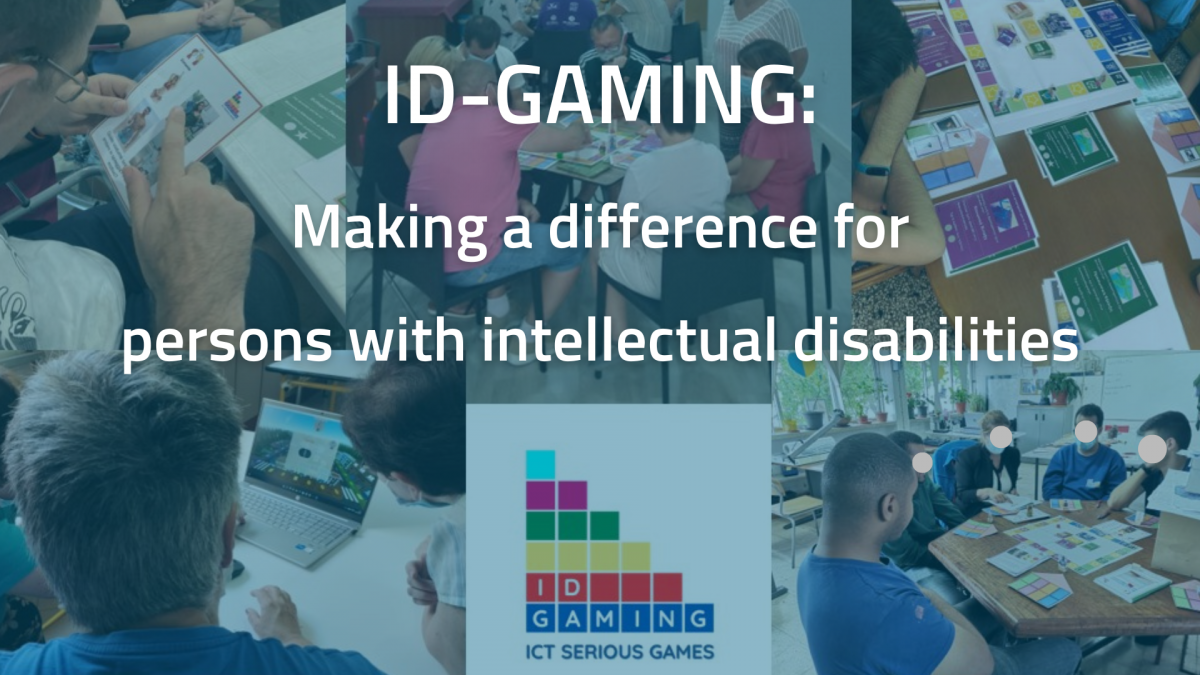
ID-GAMING: Making a difference for persons with intellectual disabilities
A group of six institutions, across the social solidarity and information and communication technologies (ICT) sectors, have partnered up to improve the quality of life of persons with intellectual disabilities through “serious games”. Preliminary results are in — and they are promising.
From 01 November 2020 to 31 October 2022, an interdisciplinary and international corpus of social workers and researchers — including INESC-ID’s Rui Prada — collaborated with one goal in mind: to increase the competences of Persons with Intellectual Disabilities (PID) and related professionals and relatives by developing and implementing ICT serious games (designed with purposes other than just pure entertainment — e.g., training), thus hopefully improving cognitive functions and, therefore, their quality of life.
Following a codesign approach in which PID were involved in the development process from the beginning, ID-GAMING resulted in three main outputs: the QooL CITY Game (a collaborative serious game, available in board and online versions, where players are engaged in a joint-play activity to have fun and achieve training objectives together), the Game Catalogue (a set of games and platforms suitable to PID, in which each game can be selected according to the cognitive function to be trained) and a host of Training Materials (conceived to provide support to PID, professionals and relatives when using the QooL CITY Game with training purposes). All resources are freely available on the ID-GAMING toolkit website.
Based on observations reported by technicians working with PID during ID-GAMING evaluation sessions, over 70% of PID involved are estimated to have benefitted from some form of improvement. Adoption of ID-GAMING resources by the PID support institutions involved in the project has been substantial, with four events to disseminate the developed tools being held and several institutions showing real interest in using and adapting them to their own setting. As a testament to the reach and potential of ID-GAMING, the project received the Inclusive E+ Award from the Education and Training Erasmus+ Portuguese National Agency in November 2021.
The six ID-GAMING partners are now focused on further developing the project, both by putting together a five-year exploitation plan as well as moving forward with a controlled research study in which the positive outcomes observed by technicians and social workers while ID-GAMING was implemented can be confirmed and systematized.
“It was a challenging job because it involved a population with very specific needs, which is why we followed a methodology that involved targeted population groups from the beginning. We held several codesign workshops and some of the ideas proposed in them were included in the final game,” Rui Prada commented.
At the end of the day, a project that purports to improve PID’s quality of life only makes sense, and can only be judged, by the impact it has on those populations. “I was extremely happy to see, at the end of the project, that the main ambassadors of the game are the people we created it for,” Prada proudly observes. “In an event organized to disseminate the project’s results to the community, held at IST Tagus Park in October, we invited several of the PID involved in codesign and evaluation of the game in Portugal, from CECD in Mira Sintra. They presented and explained the game to the other participants with great enthusiasm and pride. The institution’s trainers also thanked us for the work of creating the game. It was gratifying to see that the game was so well received and seems to have such an impact.”
Bringing together expertise from six partners — Centro de Educação para o Cidadão com Deficiência (CECD, in Mira Sintra, Portugal), INESC-ID, the Aristotle University of Thessaloniki (AUTH, in Greece), Consorzio Solidarietà Sociale Forlì-Cesena (CSS, in Italy), Coordinadora de recursos de atención a personas con diversidad funcional intelectual (COPAVA, Spain) and Associazione Italiana per l’Assistenza agli Spastici (AIAS, Italy) — ID-GAMING was co-funded by the European Union Erasmus+ programme.
